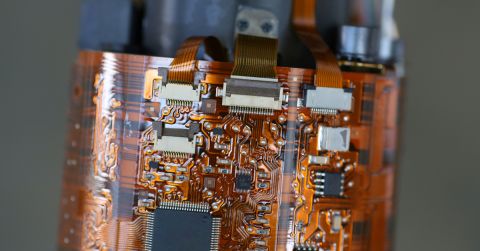Powering the Open RAN Revolution with Advanced Connector Solutions
In the past decade, the rise of Open Radio Access Network (Open RAN) technology has become one of the most notable trends in the telecommunications industry. Through an open ecosystem, Open RAN is enabling greater flexibility, reduced costs, and enhanced interoperability between equipment from diverse vendors. However, facilitating the widespread adoption of Open RAN will require cohesion and standardization between suppliers across the industry. By providing advanced connector solutions and technical expertise, PEI-Genesis is playing a major role in enabling the future of Open RAN.
What is Open RAN?
Unlike traditional RAN systems, which are typically restricted to using hardware and software by a single vendor, Open RAN adopts an open-standard, multi-vendor approach. This allows network operators to use Commercial-Off-The-Shelf (COTS) products and combine components from different suppliers. Doing so breaks the cycle of vendor lock-in and fosters a competitive environment that drives innovation and cost reduction.
Beyond cost savings, the importance of Open RAN additionally lies in its ability to connect user devices, like smartphones, to the core network more efficiently. This has been particularly pivotal in the 5G rollout, where Open RAN has helped introduce new 5G services and applications rapidly with the help of third-party providers. In this way, Open RAN promotes the democratization of the Radio Access Network, enabling private enterprises to establish their 5G networks with unprecedented flexibility and ease.
Open RAN Challenges
Despite the potential of Open RAN, the technology is still faced with challenges that must be addressed before it can reach widespread adoption. Primarily, Open RAN is hindered by the need for interoperability.
The vision for Open RAN is to enable components from various vendors to seamlessly communicate and operate together. Therefore, the crux of the interoperability challenge is to ensure that disparate systems, often designed in isolation, can function as a cohesive unit. Achieving this requires well-defined standards, protocols, and interfaces that are strictly adhered to — as well as an extensive and intensive process of system integration and testing. This process is both technically demanding and incurs substantial costs, potentially offsetting the financial benefits derived from shifting away from legacy RAN systems.
Solutions with Advanced Connectors
Addressing the interoperability challenges of Open RAN necessitates a collaborative approach among telecommunications operators, vendors, and system integrators. Together, these groups must align on standards and practices to ensure that components from various vendors can seamlessly work together. Within this, system integrators are particularly crucial, as they provide the expertise needed to bridge the gap between diverse systems and streamline the integration process.
To support this framework, the selection and use of common connector types will be necessary. Standard connectors, including coaxial connectors like N-type and SMA, alongside fiber optic connectors such as LC and SC, are already being designed to meet the rigorous demands of Open RAN systems.
For example, the Amphenol RF N-Type connectors provided by PEI-Genesis are engineered for precision, ensuring reliable performance in high-power applications such as amplifiers and Open RAN base stations. With rugged construction and excellent RF performance, including a frequency range extending up to 11GHz, these connectors support the broad bandwidths necessary for advanced telecommunications networks.
Similarly, PEI-Genesis offers Cinch Johnson coaxial connectors for Open RAN SMA applications. These semi-precision, high-frequency components are capable of delivering consistent broadband performance from DC up to 18GHz. Their low reflection and steady 50-ohm impedance, along with a comprehensive quality assurance framework and renowned reliability, allow for seamless interoperability in Open RAN ecosystems.
For fiber-optic solutions, PEI-Genesis supplies SC and LC connectors that cater to the needs of Open RAN networks. The SC connectors, known for their durability and ease of use, feature a simple push-pull latching mechanism. This allows for quick, secure connections well-suited for applications such as broadband and network hardware. On the other hand, the LC connectors, favored for their high-density applications, incorporate a small form factor and a secure latch mechanism. These connectors ensure reliable connectivity in data centers, FTTH environments, and other settings where space optimization is crucial.
Lastly, for 5G higher bands, radios, and antennas, SMP and SMPM connectors are micro-miniature interfaces commonly used in miniaturized high-frequency coaxial modules. The SMP interface offers a frequency range of DC to 40 GHz, while the SMPM interface offers a frequency range of DC to 65 GHz. Both feature push-on and snap-on mating styles and are available in a cable-to-board mated pair.
By leveraging these advanced connectors and supporting a collaborative environment, the telecommunications industry can effectively overcome the challenges of Open RAN interoperability.
To learn more about PEI’s RF product offerings, check out our Quick Reference Guide.
PEI-Genesis Paving the Way
Recently, PEI-Genesis has announced its commitment to the RF market expanding its existing portfolio of harsh environment products to include RF/Microwave interconnect. Along with this expansion, PEI has implemented The RF Solutions Group, encompassing product managers, sales representatives, and engineers globally to provide impeccable service and technical assistance. As trusted advisors, they possess extensive technical expertise and offer personalized guidance to navigate complex challenges, ensuring clients find the most effective solutions for their unique requirements.
With a deep understanding of the latest technologies and market trends in RF connectivity, as well as a comprehensive global inventory of products, PEI-Genesis is well-positioned to advise and supply clients with the most advanced solutions for Open RAN deployments.













 Back
Back

